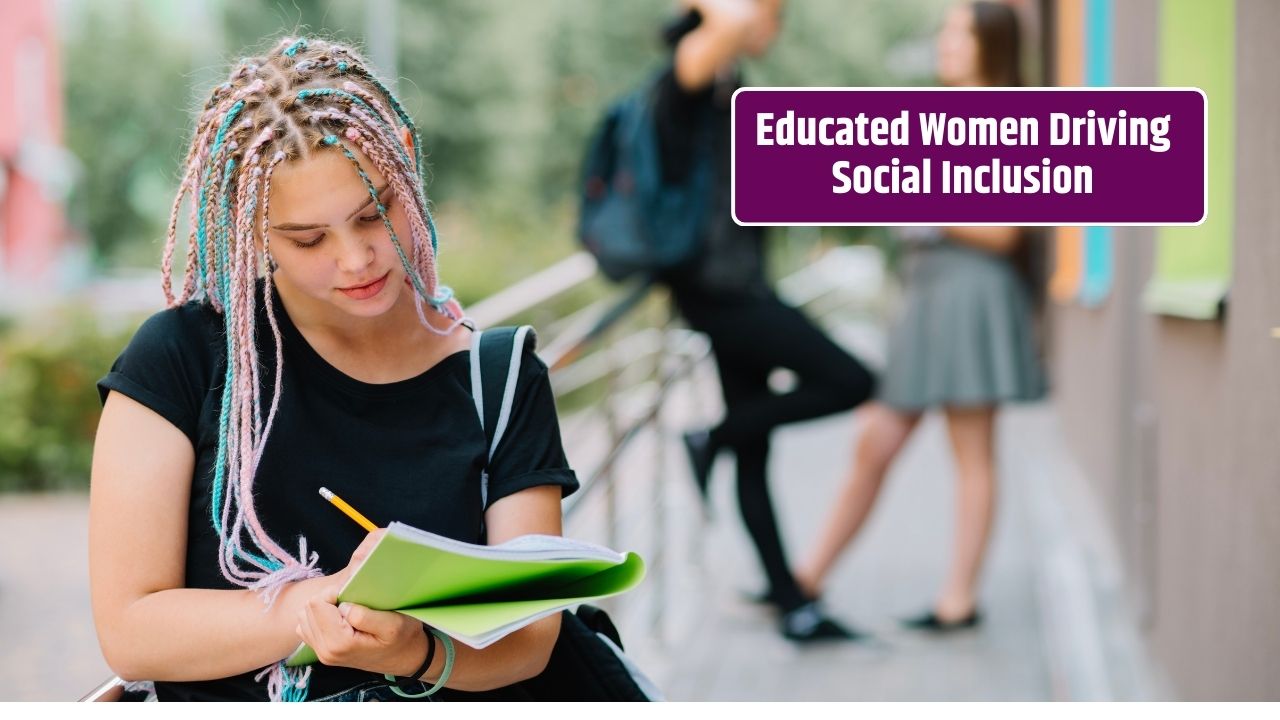When you picture the engine of an inclusive community, you might imagine local leaders, social workers, or policymakers. But often, the quiet force shaping these spaces are educated women—teachers, mentors, entrepreneurs, advocates—who use knowledge as both a shield and a bridge. Around the world, and here in Canada, research shows that when women are empowered through education, entire communities benefit: healthier families, stronger economies, and more equitable societies. It’s not just about diplomas—it’s about how those skills and insights ripple outward.
Educated Women as Community Builders
Education equips women with more than academic knowledge. It fosters confidence, problem-solving, and a sense of agency. Women who pursue higher education often become the connectors in their neighborhoods—leading literacy programs, advocating for safe spaces, and organizing community events. These grassroots actions create a sense of belonging for marginalized voices that might otherwise be overlooked.
Driving Economic Inclusion
When women are educated, they are more likely to enter and thrive in the workforce. This boosts household income and, more importantly, strengthens local economies. A World Bank report highlights that closing gender education gaps could increase global GDP significantly. On a local scale, educated women frequently mentor or hire others, multiplying opportunities within their own communities.
Promoting Social Justice and Advocacy
Educated women often channel their knowledge into advocacy—challenging discriminatory policies, speaking up for reproductive rights, or demanding pay equity. In Canada, organizations like the Canadian Women’s Foundation rely heavily on the leadership of women who bring both lived experience and formal education to advance gender equality. Their work doesn’t just benefit women—it dismantles barriers for all vulnerable groups.
Strengthening Health and Well-Being
Communities thrive when their members are healthy. Educated women tend to make informed health decisions, not only for themselves but for their families. They often lead initiatives in maternal health, mental well-being, and access to healthcare services. By spreading awareness and reducing stigma, they make communities safer and healthier.
Education as a Tool for Cultural Inclusion
Inclusive communities celebrate diversity. Educated women are often at the forefront of intercultural dialogues—teaching languages, hosting cultural festivals, or bridging immigrant and Indigenous communities with broader society. Their ability to bring people together strengthens cohesion and mutual respect.
At a Glance: How Educated Women Foster Inclusion
| Role | Community Impact |
|---|---|
| Builders & Organizers | Create spaces for belonging and collaboration |
| Economic Drivers | Expand job opportunities and financial security |
| Advocates & Activists | Challenge inequality and systemic barriers |
| Health Promoters | Improve family and community well-being |
| Cultural Connectors | Strengthen multicultural understanding |
Educated women don’t just participate in communities—they transform them. By leveraging knowledge, they create spaces where everyone has a seat at the table, not just the privileged few. That’s why investing in women’s education is one of the most powerful strategies for building inclusive, resilient societies.
FAQs
Why is women’s education crucial for inclusive communities?
Because it empowers women to contribute economically, socially, and politically, which benefits the entire community.
How does education impact women’s leadership?
It provides confidence and skills needed to lead organizations, advocate for policies, and influence decision-making.
Can local volunteer work by educated women make a difference?
Absolutely—grassroots leadership often has the most immediate and tangible impact on community inclusion.




